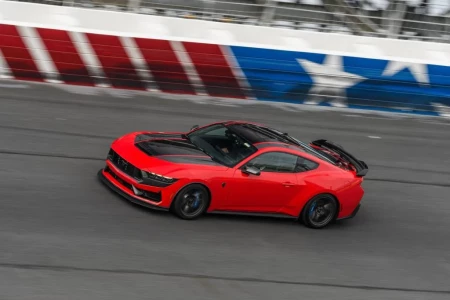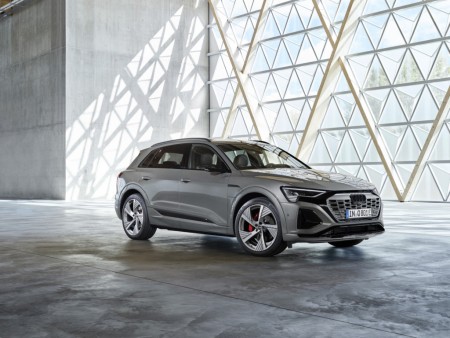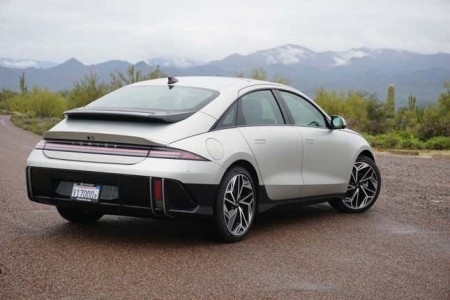Maserati is at the same inflection point as the rest of the automotive industry. But as the Italian luxury brand with the motorsports pedigree prepares for the centennial of its first car—the Tipo 26 that first raced in 1926—it’s doing what no other automaker is doing: Maserati has overhauled its product line by essentially making two of every model, an internal combustion version and a battery electric version. It’s also following the trend by ramping up its luxury SUV offerings to team with its supercars and performance luxury sedans.
Bill Peffer, CEO of Maserati Americas, sat down with Motor Authority on a rainy summer day in Chicago to provide an overview and a reasoning for this decidedly different approach toward the automotive headwinds.
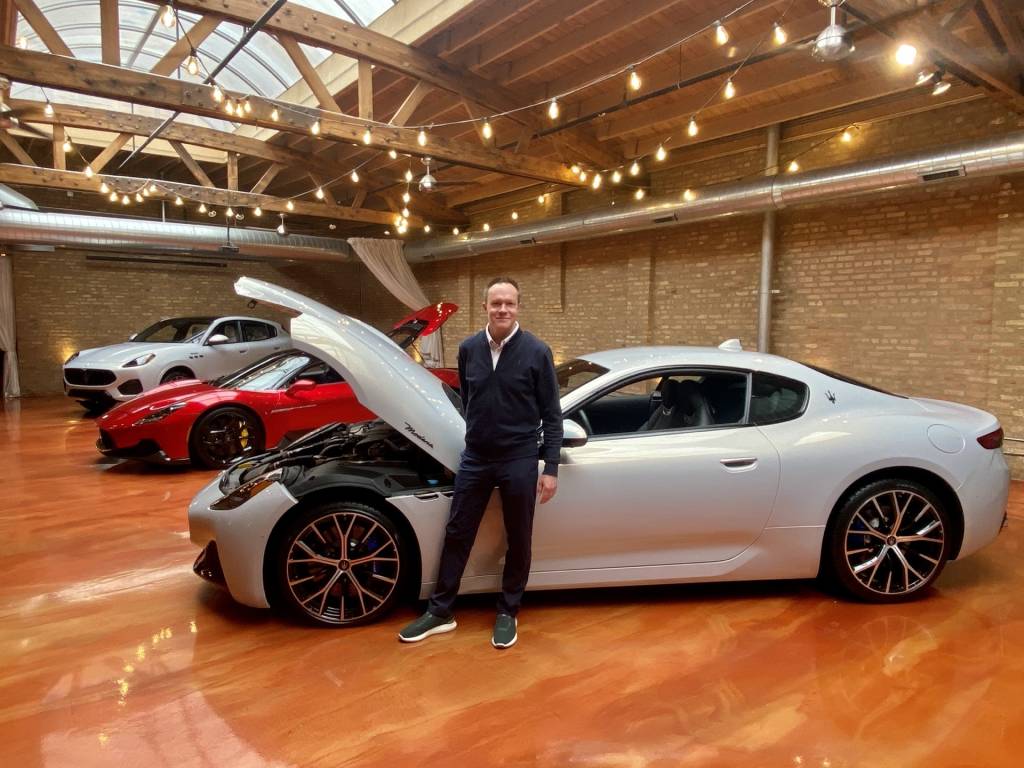
Advertisements
Bill Peffer, CEO of Maserati Americas, poses beside the 2024 Maserati GranTurismo
In short, it’s gonna take money, a whole lotta spending money.
“This would not have been possible had we not been part of a big group like Stellantis,” Peffer explained. “We see the investments that are being made across the industry into electrification. We’ve gone beyond the tipping point so this is not a fad. As a global brand that sits at the pinnacle of the Stellantis 14-brand lineup, our job is to lead not follow.”
Maserati shows off new product line
Peffer showed off what’s leading the Maserati trident at a makeshift showroom in Chicago: the MC20 mid-rear supercar that led the Maserati renaissance in 2022; the GranTurismo coupe (the electric Folgore model had not arrived yet); and the Grecale mid-size crossover, sized between the Porsche Macan and Porsche Cayenne, and poised to be the brand’s bestselling model in the highest volume segment.
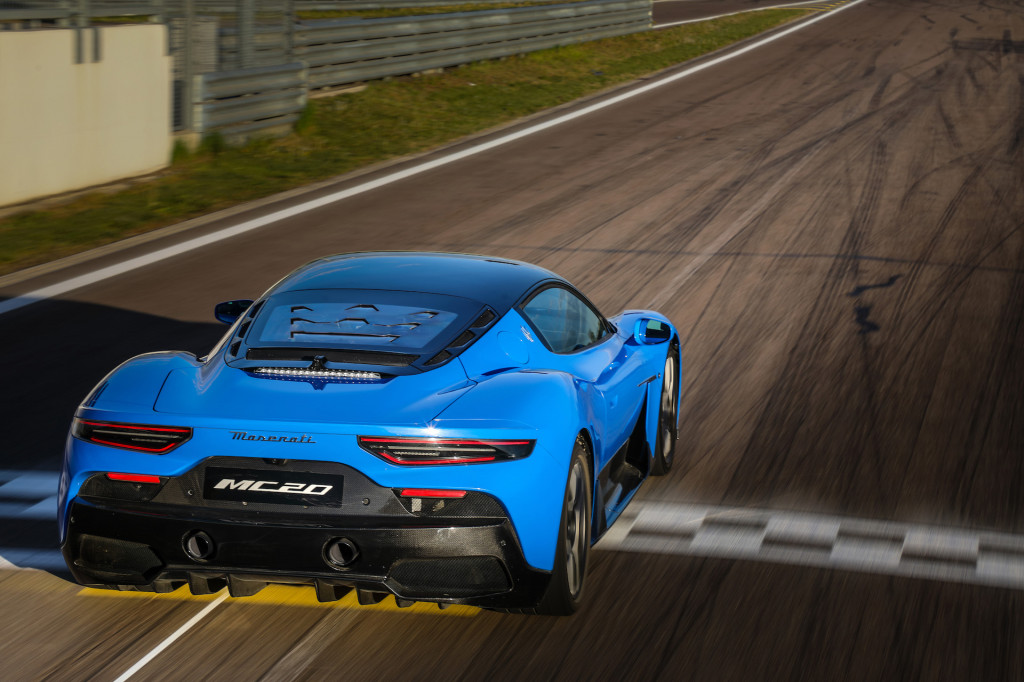
2022 Maserati MC20
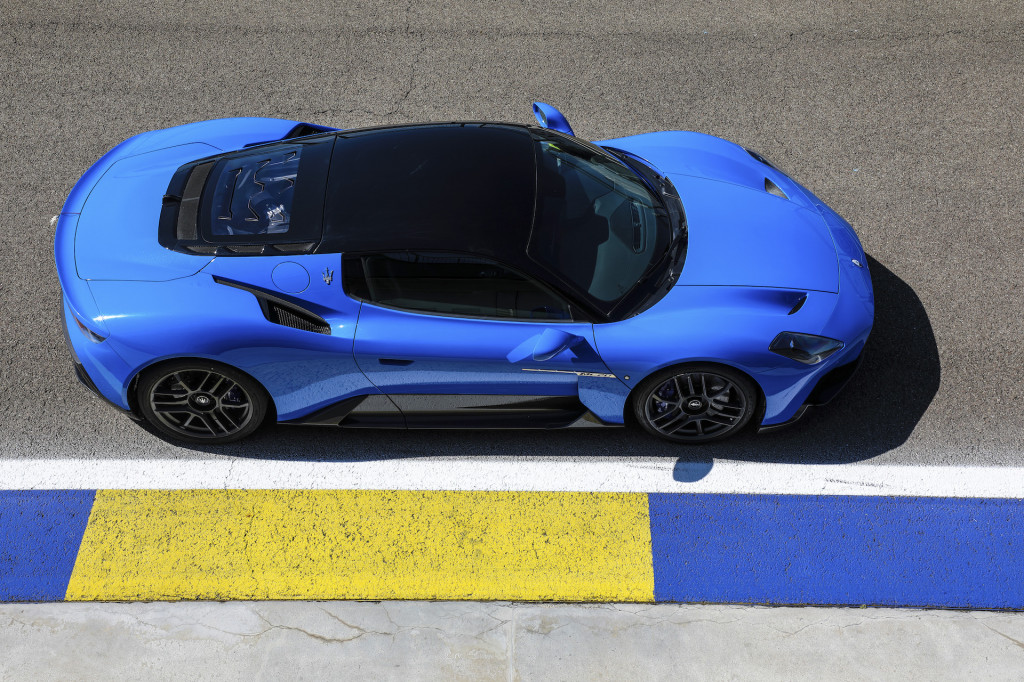
2022 Maserati MC20
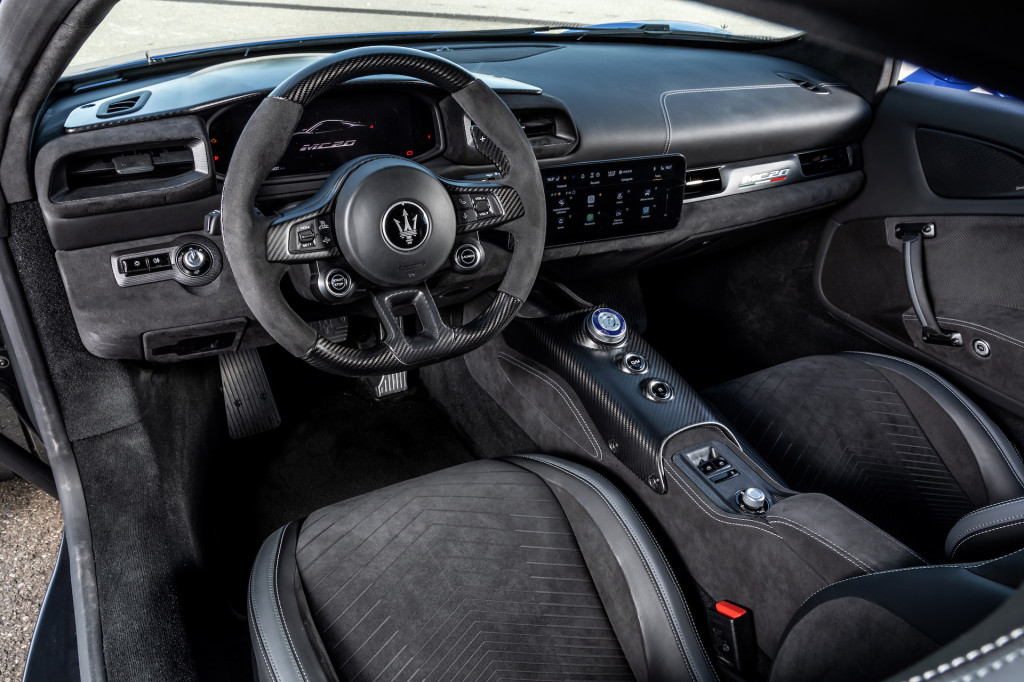
2022 Maserati MC20
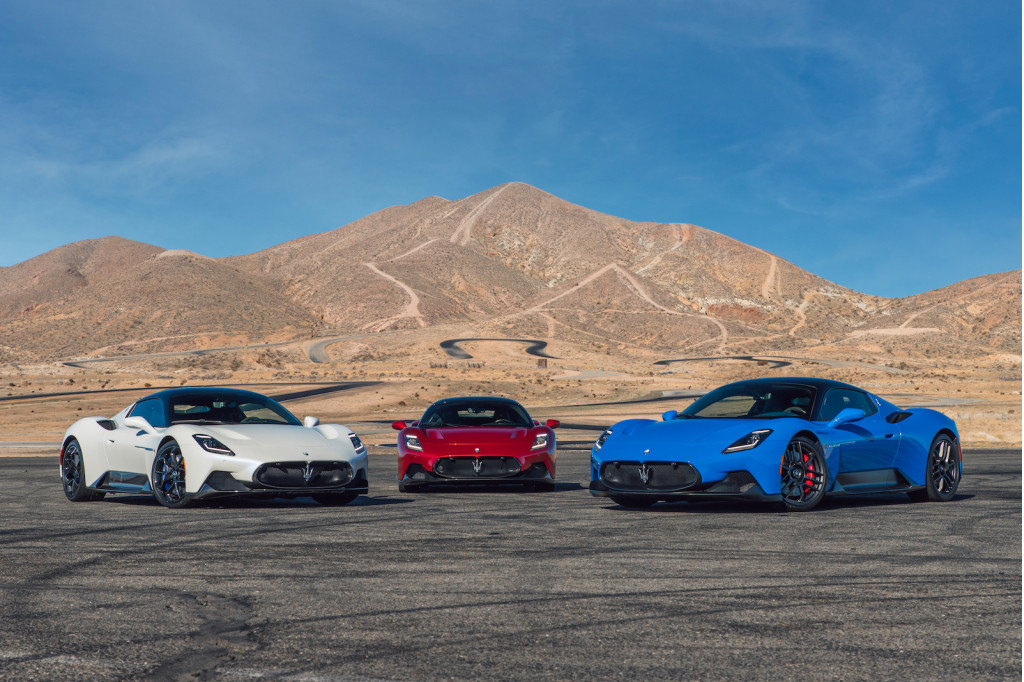
2022 Maserati MC20
“When someone walks into our showroom today, they won’t recognize it from 12 or 18 months ago,” Peffer said, showing off the trident-shaped air vents over the 621-hp twin-turbo 3.0-liter V-6 behind the two seats of the MC20.
Dubbed Nettuno, or Neptune in keeping with Maserati’s heritage of the sea and the wind, it’s the first engine Maserati developed in two decades, following the decades-old partnership of Maserati sourcing engines from Ferrari. In 2016, then-parent company Fiat Chrysler Automobiles officially separated from Ferrari, who went public. An agreement remained in place for Ferrari to provide Maserati engines through 2024, which is when the V-8 era ends at Maserati after 65 years, as it already has with so many other luxury automakers.
“After 2024, after the last V-8s are built, the current generation of Ghibli, Quattroporte and Levante will sunset in their current iteration, leaving you the Grecale, the GranTurismo and Gran Cabriolet, the MC20, and the (MC20) Cielo,” Peffer explained.
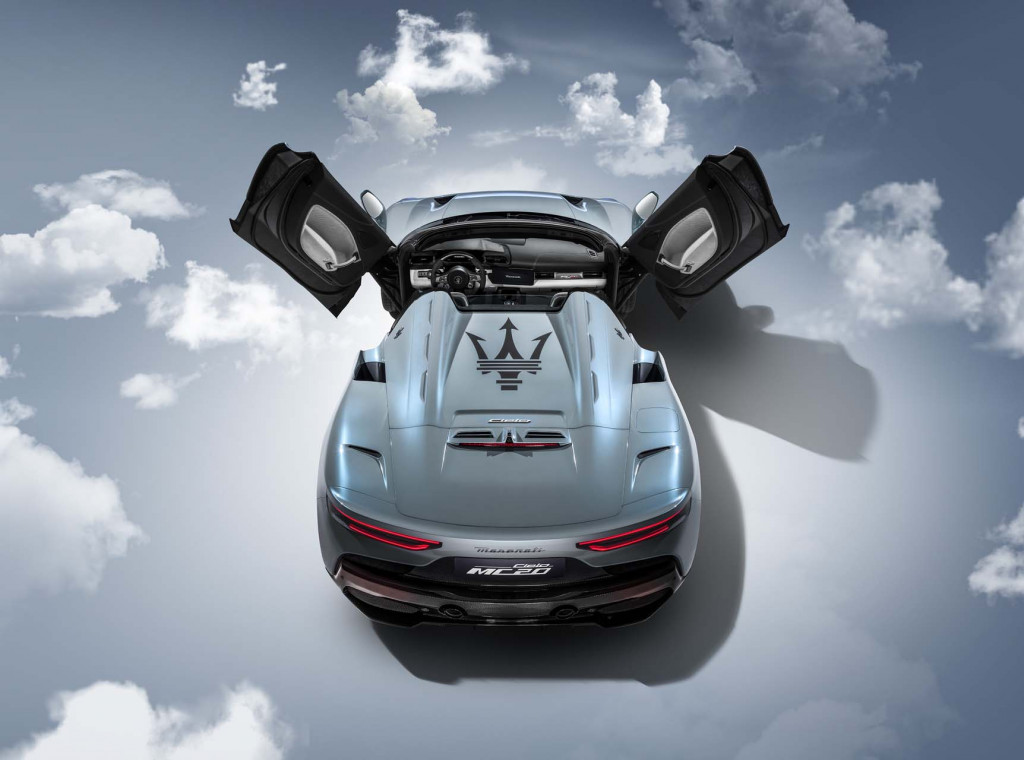
2023 Maserati MC20 Cielo
That marks the end of the middling Ghibli mid-size sedan that had been the entry point of the brand before the launch this year of the 2024 Maserati Grecale that, like the Ghibli, takes its name from a famous wind pattern. It also marks inflection points for both the Levante and Quattroporte.
“We’ve evolved from a luxury performance sedan brand to a purveyor of luxury performance SUVs—with two offerings in the short term—and supercars,” the 53-year-old Peffer said with a measured take on where the 108-year-old-brand stands now. “We’re in SUVs because that’s 80% of where the luxury industry is. But supercars, performance cars, track cars, and race cars—that’s where our history has been made. We think we’re in a much better spot bifurcated that way.”
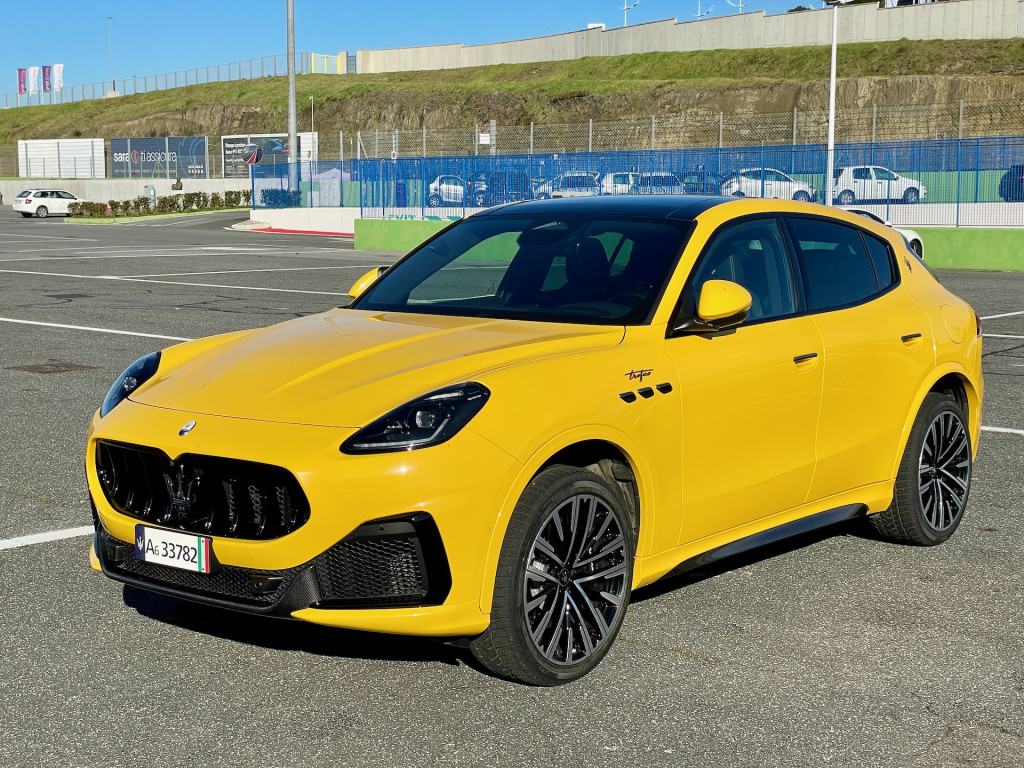
2023 Maserati Grecale
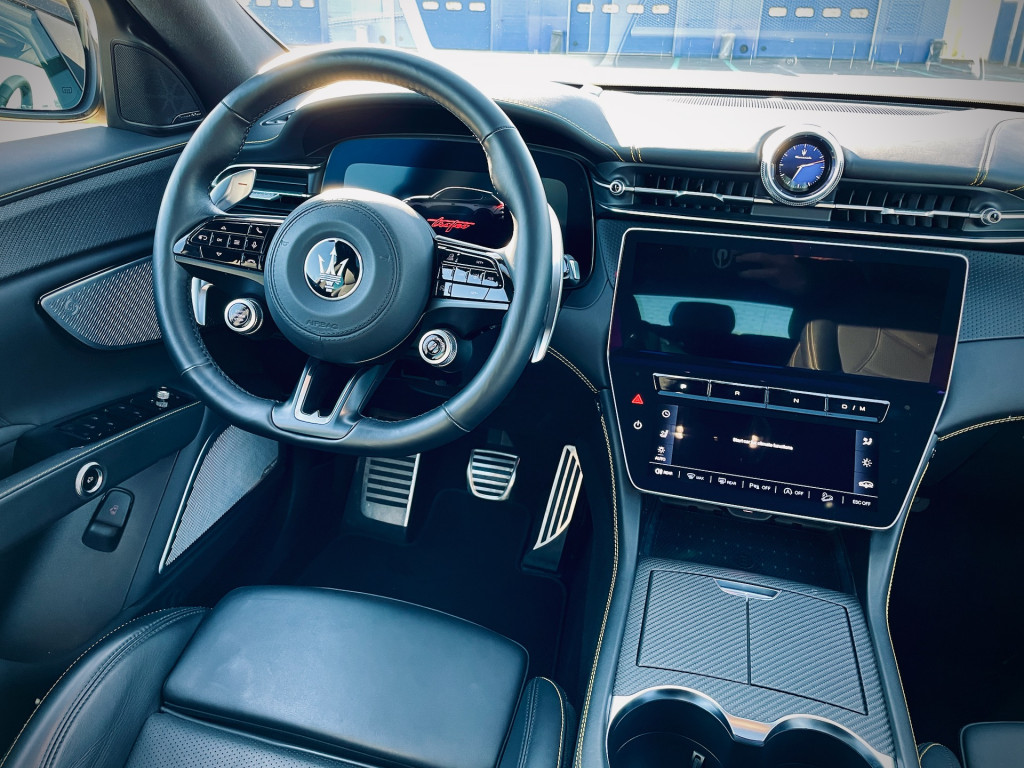
2023 Maserati Grecale
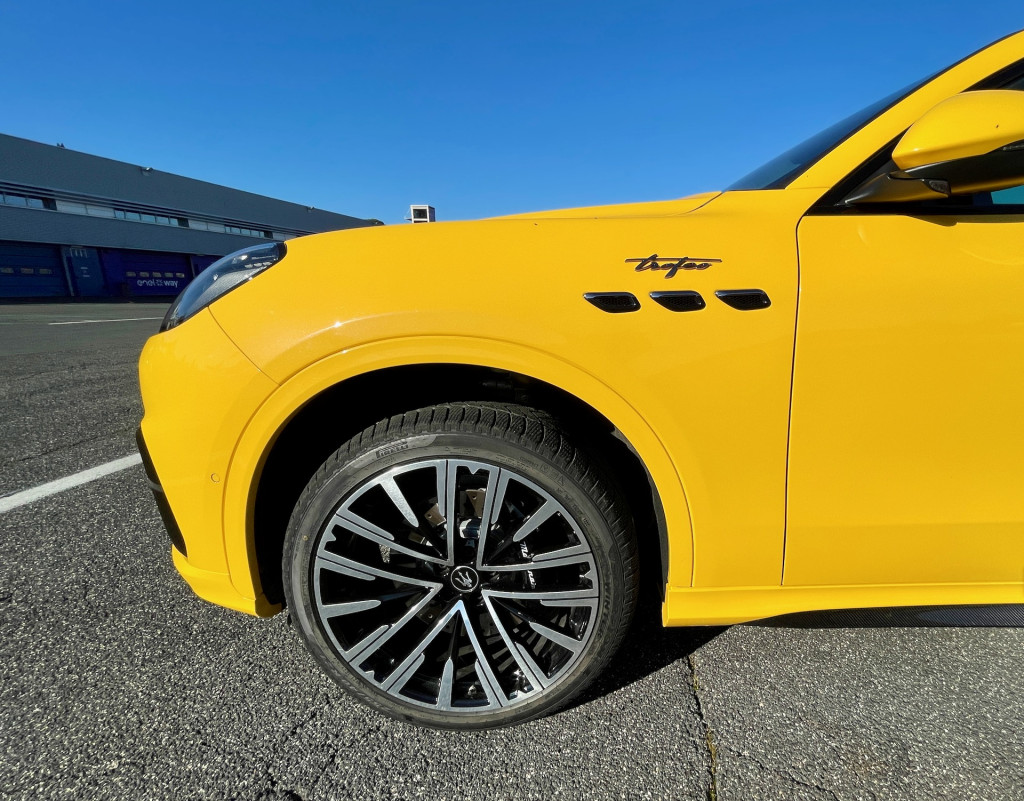
2023 Maserati Grecale
That bifurcation applies to powertrains, too. Maserati not only shifts from V-8s to a twin-turbo V-6, and from sedans to crossovers, its two-pronged powertrain approach will apply to at least five of eight models.
Peffer, who rose through the ranks at Ford, Nissan, Cadillac, and most recently Kia, and who came to Maserati in 2021, acknowledged the change happening across the industry.
“I’ve been in the business almost 30 years and I’ve not seen this level of transformation in the past five years that I had the prior 20-plus years,” the Michigan State alum said. “It’s amazing how quick these changes go.”
Change like lightning
Dubbed Folgore, or “lightning” in Italian, across the brand, the GranTurismo Folgore arrives 90 days after the classic two-door, four-seat tourer arrived in dealerships early this summer. The brand’s first BEV has a 92.5-kwh battery pack in the shape of a T that fits in the driveline tunnel and stacks behind the rear seats.
Three 300-kw motors, including two in the back, make 750 hp and 995 lb-ft of torque, propelling the all-wheel-drive electric grand tourer from 0-60 mph in 2.6 seconds. The MC20 Nettuno does it in 2.9 seconds, and it weighs 1,500 pounds less.
Advertisements
“It’s an amazing amount of torque and energy you can bring into these vehicles,” Peffer said.
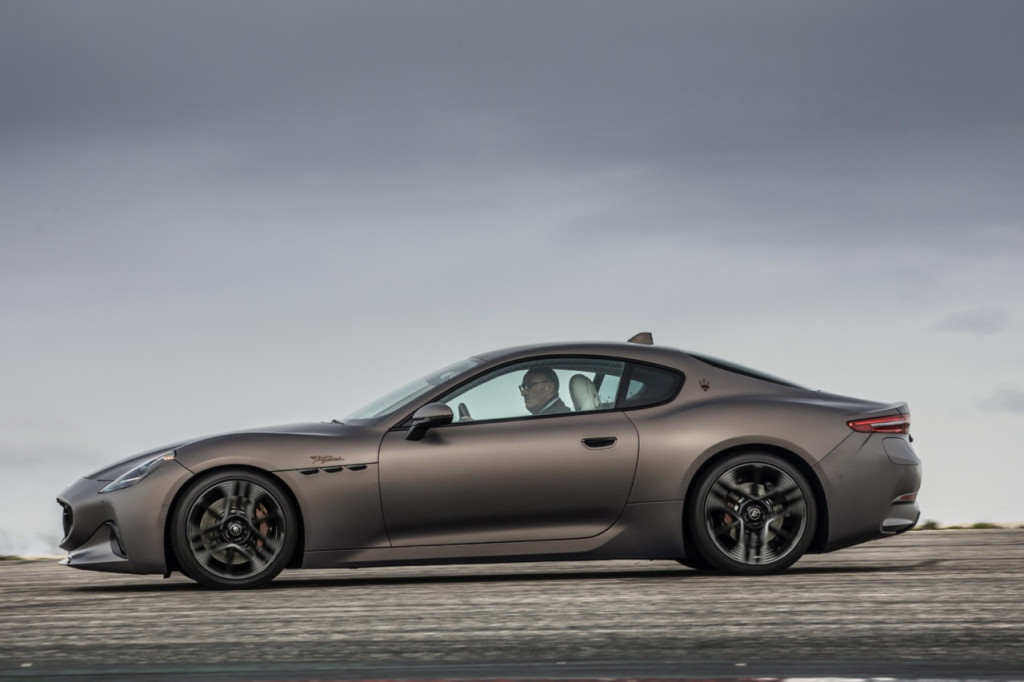
2024 Maserati GranTurismo Folgore first drive review
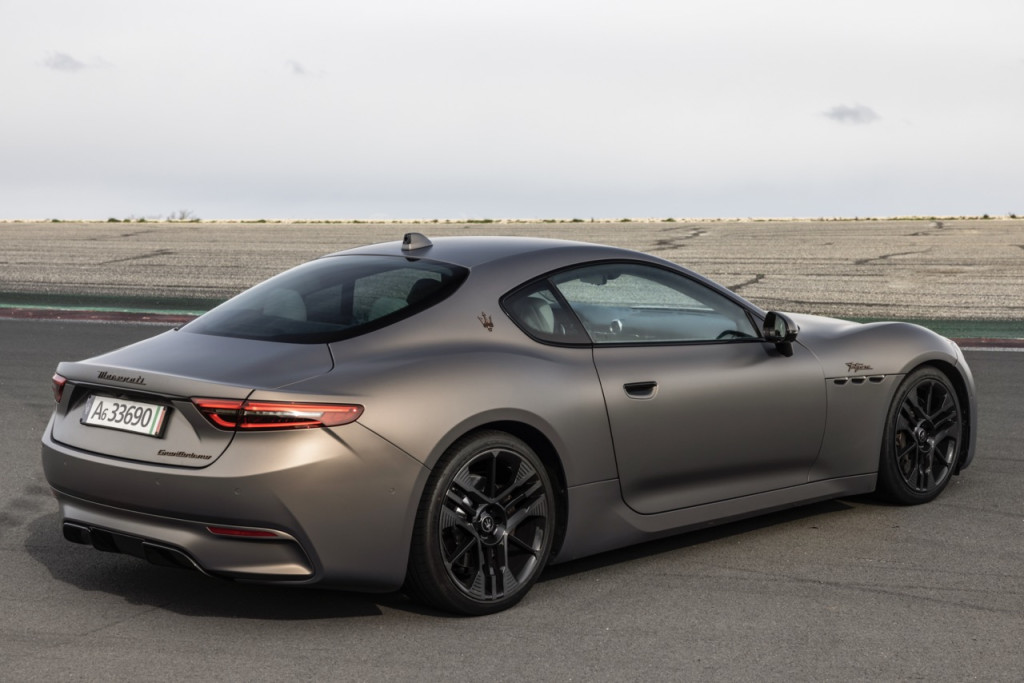
2024 Maserati GranTurismo Folgore first drive review
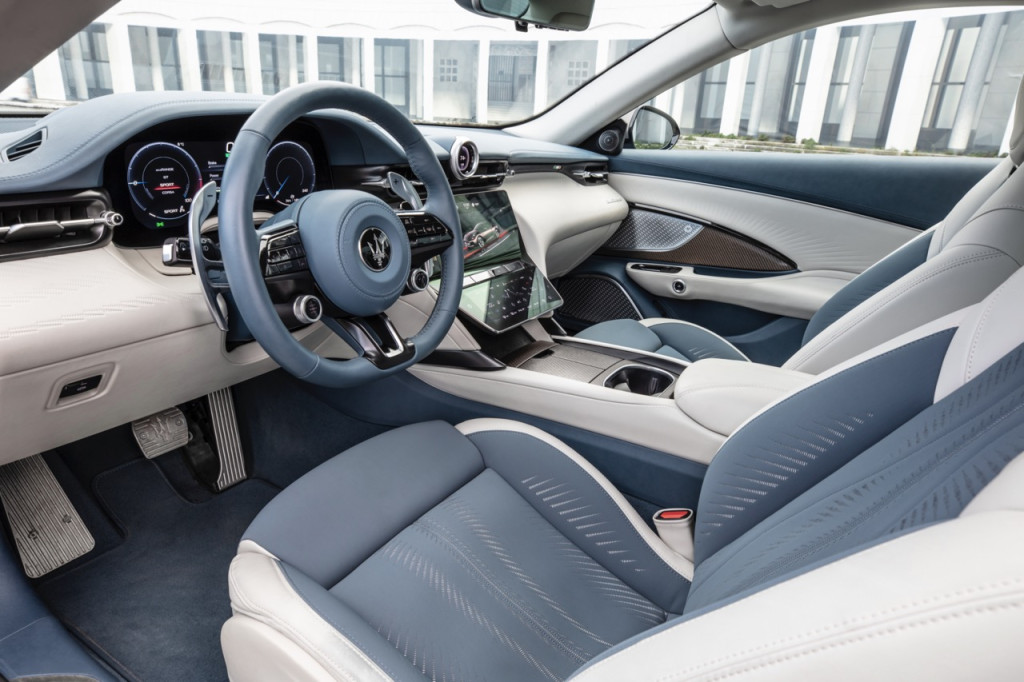
2024 Maserati GranTurismo Folgore first drive review
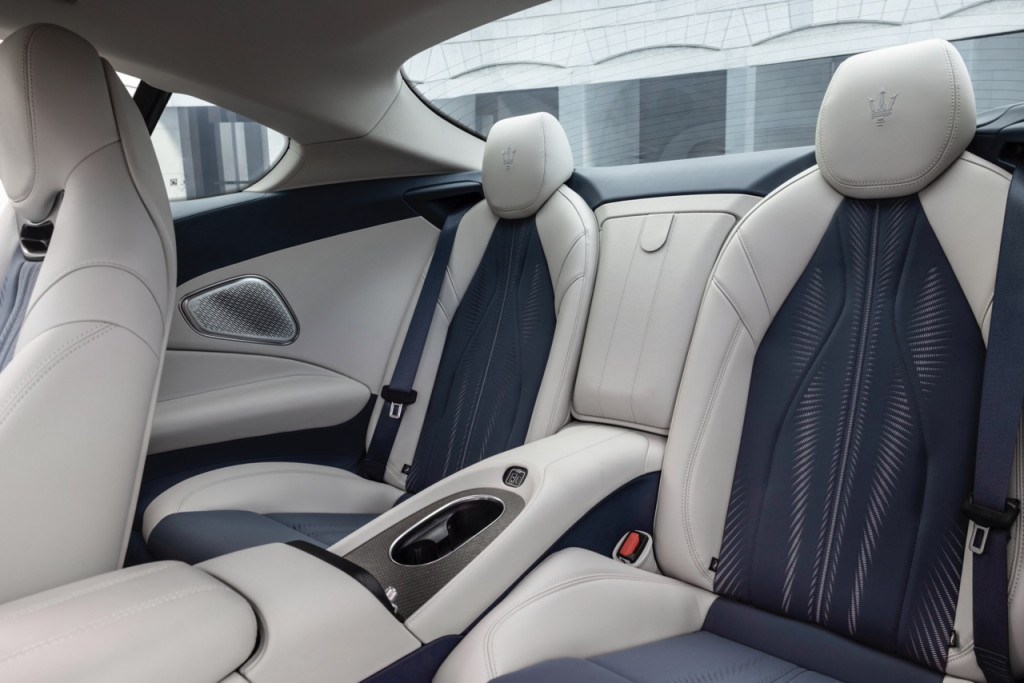
2024 Maserati GranTurismo Folgore first drive review
Every new car from the MC20 forward has an electric version or will be exclusively electric. It’s a much different and costlier approach than many other luxury automakers ringing in new electric models on dedicated platforms while sounding the death knell for combustion engines. BMW is doing something similar with the 4-Series, 5-Series, and 7-Series, but they will all graduate to a dedicated EV platform with the forthcoming 3-Series Neue Klasse due around 2025.
Mercedes’ EQ lineup and Audi’s E-Tron electric family counter gas models on aging platforms, while Jaguar promises the development of only battery electric vehicles by 2025, Alfa Romeo by 2027, and Lotus by 2028. Meanwhile, automakers ranging from Bentley to Volvo, and Mercedes-Benz and Lexus, set 2030 as the target date for only development of battery electric vehicles.
Maserati joined the latter group last year, but it simultaneously overhauled its existing lineup with new gas models developed on platforms to be interchangeable with electric propulsion systems. There will be no plug-in hybrid bridge like Volvo, Alfa Romeo, and, most notably, Porsche.
When asked when Maserati would roll out its first dedicated EV platform without a gas counterpart, he replied, “In the not too distant future.”
It’s rumored that the legendary Quattroporte, which has been around in some iteration for more than 60 years, will only be offered as an electric version when it arrives in 2024. Peffer would not confirm this.
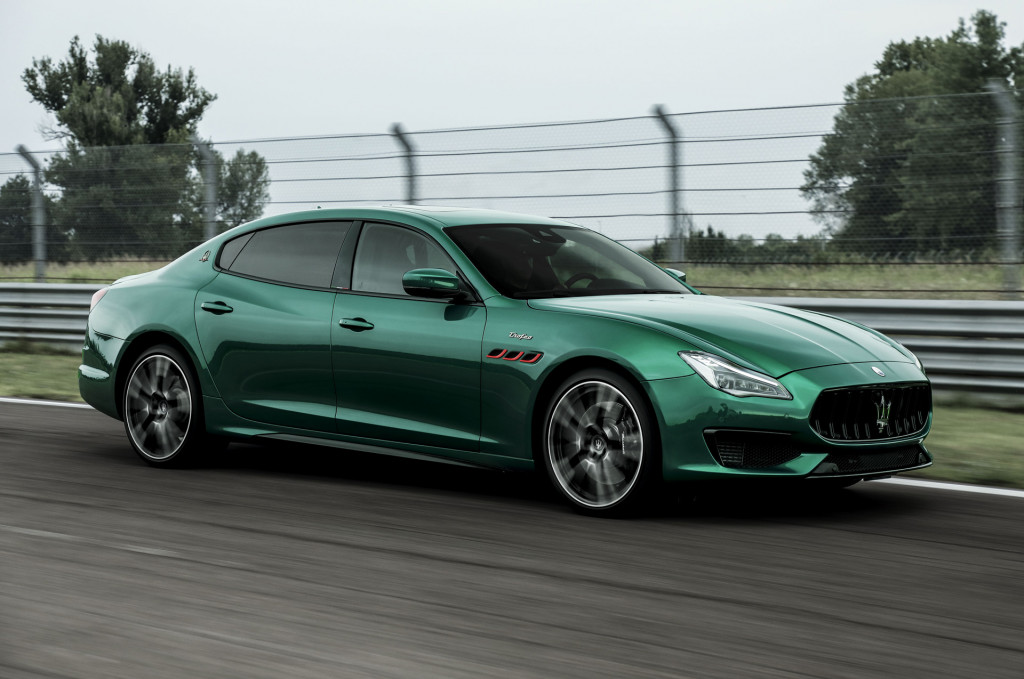
2021 Maserati Quattroporte Trofeo
Maserati and Stellantis
As a global brand operating in 77 countries, Maserati uses its backing from Stellantis—the world’s third largest automotive group—as a competitive advantage.
“A lot of our competitors are standalone and quite frankly they have restrictions in research and development to bring out these technologies,” he said. “You don’t see a company our size that stands alone and brings out a whole new showroom in the course of 18 months.”
The benefit of a bankroll isn’t recession proof, based on recent history. In the lean years following Fiat’s rescue of Chrysler from bankruptcy in 2009, eventually morphing into Fiat Chrysler Automobiles, the interior of a Maserati sedan shared far too much with a Chrysler 300, from the power window and door switches to the touchscreen interface.
The obvious cost-cutting tarnished the halo sitting at the top of the megabrand, and in 2019, FCA merged with Peugeot, or the PSA Group. It combined more European brands with a distinctly French flair, including Peugeot, Citroen, and DS, as well as Vauxhall from Britain and former GM brand Opel based in Germany.
The 14 brands of the Stellantis conglomerate now rank third behind Toyota and Volkswagen as the world’s largest automakers, and Maserati sits at the top, much like Bentley for Volkswagen Group.
Peffer iterated that cost-cutting or parts sharing are not part of Maserati’s plans to grow into the new space and opportunities afforded by electrification. He said the brand’s transformation will be product-led.
“It’s not adjusting transaction prices to get there,” Peffer said. “We’re looking at what will drive an intender in this space to a Maserati from an emotive standpoint. If we can get them emotional about our offerings we know we have a better chance of keeping them.”
Peffer acknowledged that Italian design and craftsmanship is as important as honoring the brand’s performance pedigree, which is why Maserati joined Formula E this year and will be using the data collected from racing to “embed that tech into our road vehicles.”
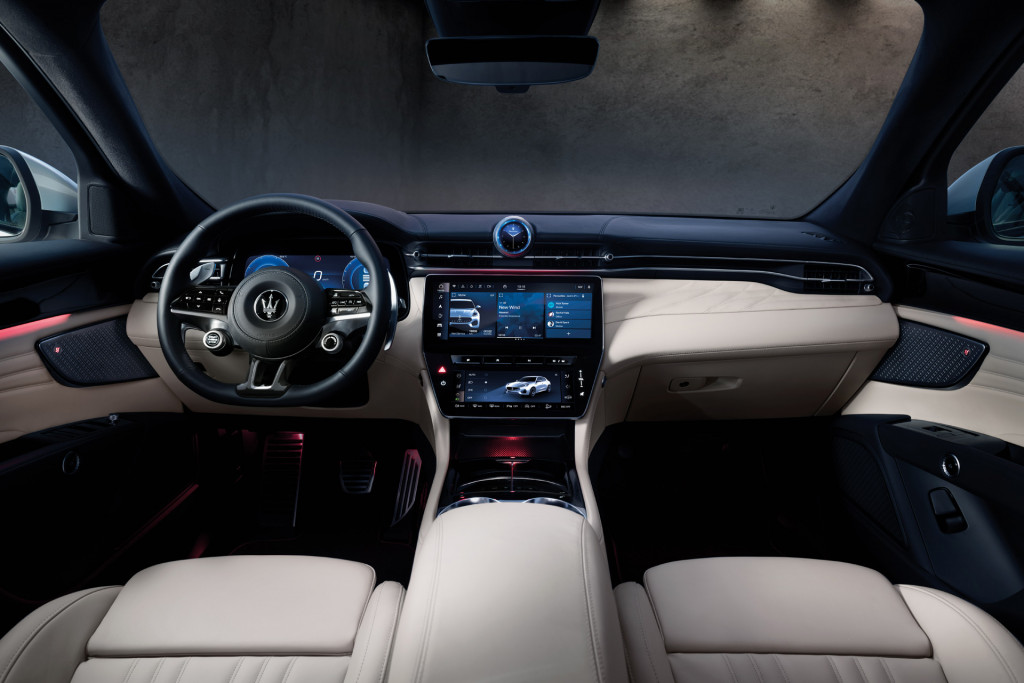
Advertisements
2023 Maserati Grecale
Technology both in the propulsion systems and in-car connectivity has become a critical focus.
“Maserati has not always been known for its technology,” he said. “Technology is a space we’ve moved quickly into with this generation of new product.”
Peffer remains sanguine about the changes disrupting the automotive industry, and confident in the Trident’s revamped product line and two-pronged approach to propulsion.
“We’re not for everybody, and that’s OK with us,” he said. “We’re not trying to be the biggest, we’re not trying to be the fastest-growing, we’re trying to be the best in an environment that’s transforming really fast.”

